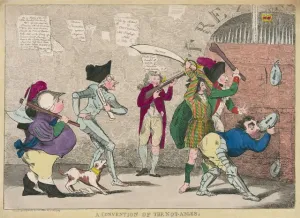
Desde Punta del Hidalgo en Tenerife, el profesor Jacinto Darías me hizo llegar el posible origen de esta expresión canaria tan usada.
Seguramente habrás oído esta expresión que forma parte del acervo proverbial canario, pero quizás desconozcas que el protagonista de la historia fue un vecino de Santa Brígida.
Alude a un suceso accidental ocurrido en los primeros años del siglo XX cuando un campesino satauteño, de apellido Ascanio, mayordomo en la Hacienda de San José de las Vegas, bajó a la ciudad con un carruaje cargado con verduras.
Se cuenta que al llegar a la ciudad, los animales se pusieron remolones y Ascanio, bruto como un arado, comenzó a castigar a las mulas para que continuaran la marcha. La escena fue vista por un turista inglés que le recriminó su actitud violenta con los animales. Ascanio no se atorró, y en medio de la trifulca, el extranjero cayó hacia atrás, golpeándose la cabeza contra una acequia y falleció a los pocos días como consecuencia de las heridas fatales.
Antes del proceso judicial, el acusado mostró su disgusto, defendiendo la versión accidental del caso; que fue sin querer. La defensa del campesino la llevaría su patrón (Manrique) que logró la absolución del reo. Y en la sociedad isleña surgió esa expresión tan popular que hoy sirve de advertencia ante cualquier acción que llevemos a cabo, pero también para censurar la irresponsabilidad y desidia de determinados comportamientos humanos que, a veces, trae consigo fatales consecuencias, como la pérdida de la propia vida.
INGLES
From Punta del Hidalgo in Tenerife, professor Jacinto Darías sent me the possible origin of this much-used Canarian expression.
You will surely have heard this expression, which is part of the Canarian proverbial heritage, but you may not know that the protagonist of the story was a resident of Santa Brígida.
It refers to an accidental event that took place in the early years of the 20th century when a peasant from Satauteño, surnamed Ascanio, butler at the Hacienda de San José de las Vegas, went down to the city with a carriage loaded with vegetables.
The story goes that when they reached the city, the animals became sluggish and Ascanio, rough as a plough, began to chastise the mules to keep them going. The scene was seen by an English tourist who reproached him for his violent attitude towards the animals. Ascanio did not get stuck, and in the midst of the brawl, the foreigner fell backwards, hitting his head against a ditch and died a few days later as a result of the fatal injuries.
Before the trial, the accused showed his displeasure, defending the accidental version of the case; that it was unintentional. The defence of the farmer was led by his employer (Manrique) who obtained the acquittal of the defendant. And this popular expression arose in island society, which today serves as a warning against any action we take, but also to censure the irresponsibility and carelessness of certain human behaviour, which sometimes has fatal consequences, such as the loss of one’s own life.
Translated with www.DeepL.com/Translator (free version)
